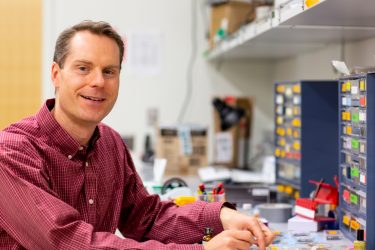
The National Science Foundation has announced it will fund a new endeavor to bring atomic-level precision to the devices and technologies that underpin much of modern life, and will transform fields like information technology in the decades to come. The five-year, $25 million Science and Technology Center grant will found the Center for Integration of Modern Optoelectronic Materials on Demand "” or IMOD "” a collaboration of scientists and engineers at 11 universities led by the University of Washington.
Regulating electron "˜spin' may be key to making organic solar cells competitive
Organic solar cells that convert light to electricity using carbon-based molecules have shown promise as a versatile energy source but have not been able to match the efficiency of their silicon-based counterparts.
Now, researchers have discovered a synthetic, high-performance polymer that behaves differently from other tested materials and could make inexpensive, highly efficient organic solar panels a reality.

.
The polymer, created at the University of Washington and tested at the University of Cambridge in England, appears to improve efficiency by wringing electrical current from pathways that, in other materials, cause a loss of electrical charge. Read More
Congratulations to MolES faculty David Ginger, who was named fellow of the American Association for the Advancement of Science for 2012. Ginger was honored for advances in the physical chemistry of nanoscale materials relevant to optoelectronics, particularly photovoltaics, and innovation in surface microscopy techniques for probing such materials.